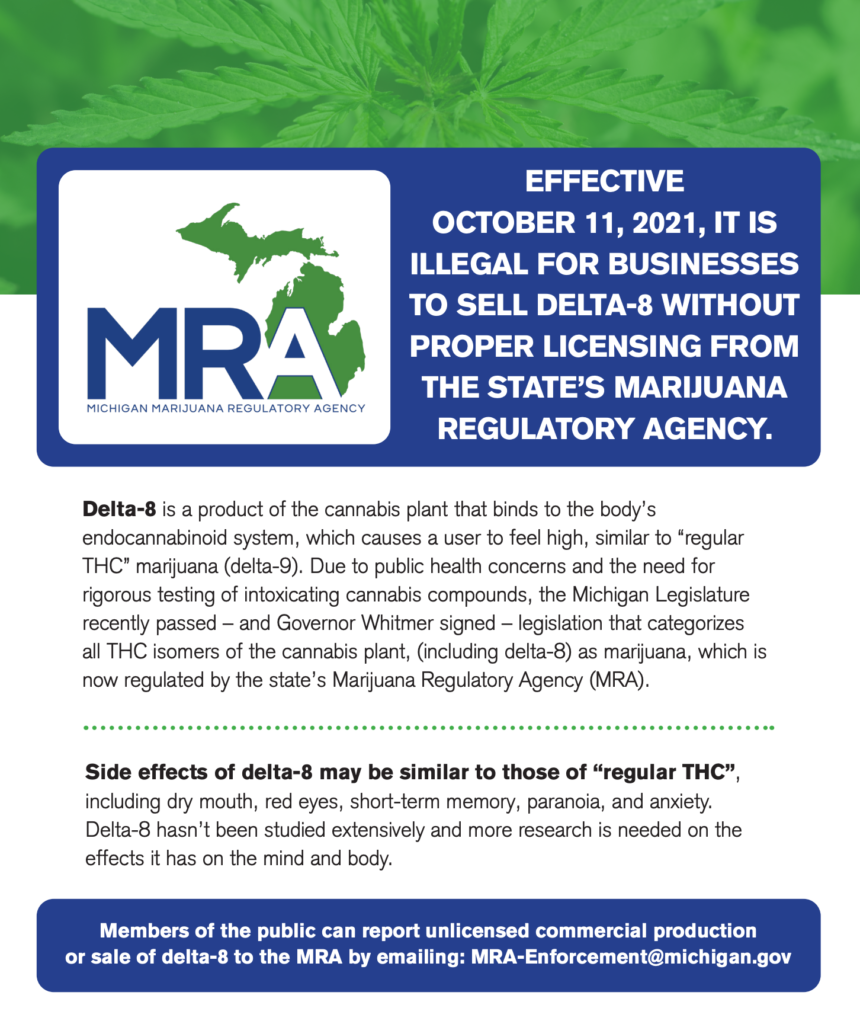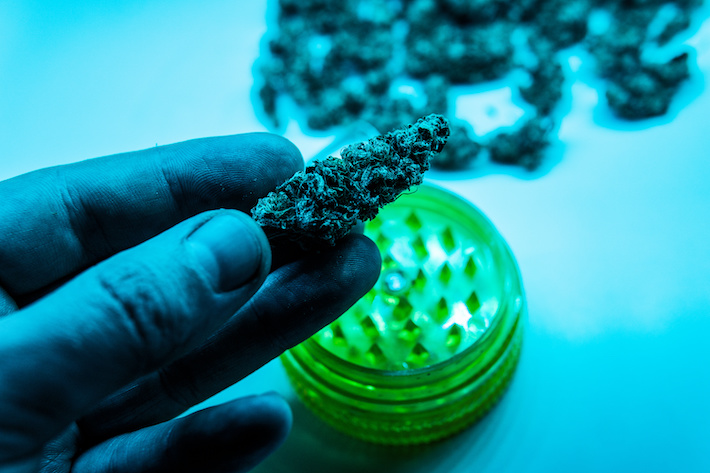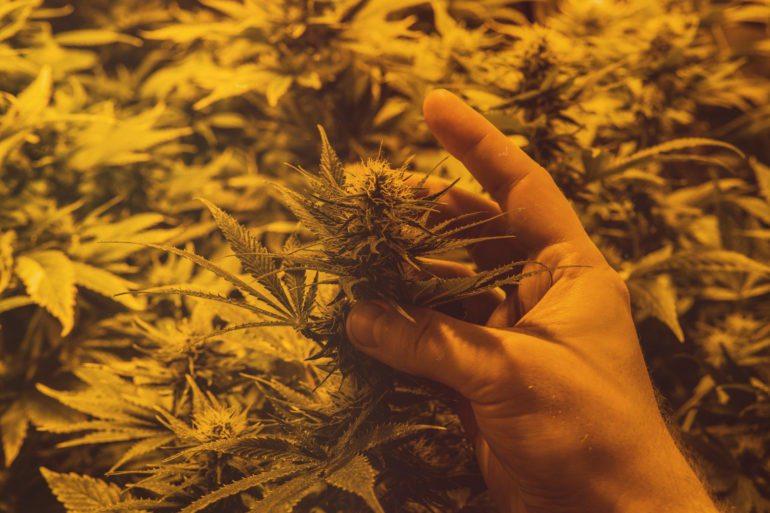Michigan made a decisive move on delta-8 THC while many states were still grappling with how to handle the cannabinoid. As of October 2021, the state brought delta-8 THC under the control of the Marijuana Regulatory Agency, basically treating it the same as marijuana.
This change has many consequences for delta-8 THC in the state, tightening regulations on the cannabinoid but still allowing adults to buy it from state-licensed dispensaries if (and only if) it was sourced from marijuana.
Here’s what you need to know about delta-8 THC in Michigan.
Is Delta-8 THC Legal to Sell in Michigan?
As of October 11th, 2021, delta-8 THC is restricted and regulated in Michigan by the Cannabis Regulatory Agency (CRA). At present, only marijuana-derived delta-8 can be sold.
Under the regulatory framework, it’s illegal for any vendor or manufacturer to sell, distribute, or produce delta-8 THC products without applying for and obtaining proper licensing from the MRA. The official announcement from the CRA makes it clear that they believe that intoxicating cannabinoid products should be treated the same regardless of their source.
RELATED: Which States Banned Delta-8 THC?
As part of the October 2021 announcement, the CRA (at the time, called the Marijuana Regulatory Agency) was instructed to create a plan for the incorporation of hemp-derived delta-8 THC into the regulated marijuana industry. However, this plan was axed after it was proposed, after public comments raised safety concerns about the conversion process manufacturers would use.

Delta-8 THC Legislation Timeline for Michigan
Following the enactment of House Bill 4744 (Industrial Hemp Research and Development Act) in January 2019, Michigan officially legalized the use, possession, sale, distribution, production, and cultivation of hemp and hemp-derived compounds (including delta-8). This act coincides with federal law legalizing hemp and hemp-derived compounds, as outlined in the 2018 Farm Bill.
However, following the Drug Enforcement Agency’s proposed Interim Final Rule (IFR) in mid-2020 — potentially placing delta-8 as a federally illegal controlled substance — Michigan lawmakers introduced a set of eight bills on April 29, 2021, to regulate delta-8 products.
The bills (House Bills 4740-4746), led by House Bill 4517 and signed into law by Gov. Whitmer on July 13, 2021, revised Michigan’s definition of marijuana to include delta-8. The sale, production, and distribution of delta-8 products were also to be placed under the Michigan CRA’s control, starting October 11, 2021.
No unlicensed delta-8 vendors can sell or distribute delta-8 products in any capacity. Vendors and dispensaries must obtain licensing from the CRA. All delta-8 products must undergo mandatory testing and tracking before being put to market, and cannot be derived from hemp.
Can Delta-8 THC Be Added to Food?
Federal law doesn’t allow delta-8 THC to be added into food, but under Michigan’s marijuana law, you can add marijuana to foods if they stay within the state.
Michigan’s Regulation and Taxation of Marihuana Act allows for “marihuana infused” products to be sold in the state’s dispensaries. Since delta-8 THC is considered marijuana in Michigan, this means that delta-8 THC can be used in edibles, provided the product meets the MRA’s requirements for dosage (and packaging). However, the dosage requirements state that delta-8 THC can be – at most – 10% of the product, so for the 10 mg per serving (200 mg per container) limit, 2 mg (20 mg per container) can be delta-8.
While the federal Food, Drug and Cosmetic Act does make it illegal to add delta-8 THC to foods at the federal level, marijuana is illegal at the federal level too, but that doesn’t stop states from legalizing it. All of this is why delta-8 THC can be used in foods in Michigan provided it stays within the state. Marijuana can never be sold interstate, anyway, and Michigan’s law only creates an exemption to federal laws about adulterated foods within the state.
Can You Buy Delta-8 in Michigan?
Under Michigan state law, you cannot purchase delta-8 products from unlicensed delta-8 brands online or through physical retail stores. You can only buy delta-8 through licensed, state-regulated marijuana dispensaries, provided it was produced from marijuana.
Delta-8 Alternatives You Can Legally Buy in Michigan

The best alternative to delta-8 THC you can legally buy in Michigan is cannabis itself. Other intoxicating hemp cannabinoids such as delta-10 THC, HHC, THCP, and THCA fall under the same rules as delta-8, meaning they’re regulated by the MRA.
The state legalized the possession and sale of marijuana through the Regulation and Taxation of Marihuana Act, which means that any adult aged 21 or over can lawfully possess 2.5 ounces of marijuana or more in their home.
While it may technically be possible to find hemp delta-9 THC, this would have the same dosage restrictions as listed above for delta-8 edibles. In practice, the law in Michigan has made it simpler to just access intoxicating products through the regulated marijuana program.
Are There Age Restrictions on Delta-8 THC Products?
Since delta-8 THC is considered marijuana in Michigan, you have to be 21 to be able to legally purchase it.
Can You Consume Delta-8 THC in Public in Michigan?
Delta-8 THC falls under the same rules as marijuana in Michigan, and so you are not allowed to consume it in a public place.
Can You Drive Under the Influence of Delta-8 THC in Michigan?
Driving under the influence of delta-8 THC is illegal in Michigan, because it is an “intoxicating substance” and because it is treated the same as marijuana. However, medical marijuana patients have a bit more leniency under current law.
RELATED: Can Delta-8 THC Show Up on a Drug Test?
Michigan’s law on operating a motor vehicle while intoxicated states that it’s illegal to drive “under the influence of alcoholic liquor, a controlled substance, or other intoxicating substance” (emphasis added). This means that even if delta-8 THC was not considered to be marijuana, it would still be illegal to drive under the influence. Michigan also punishes any amount of marijuana in your system, rather than setting a specific ng/ml limit as in some states.
However, in the case of Michigan vs. Koon, it was ruled that medical marijuana patients cannot be punished for driving under the influence just for the mere presence of THC in their blood. In these cases, officers must show impairment to be able to convict someone.
In the first instance, punishment can include up to 93 days in jail, fines of up to $500, license suspension and six points on the individual’s driving record.
RELATED: Can Delta-8 THC Get You High?
Can You Travel to Michigan With Delta-8?
Michigan considers delta-8 THC to be marijuana, but these rules mainly concern sales in-state and not travel. It’s unclear how traveling with delta-8 THC will be treated in the state.
While delta-8 THC remains legal at the federal level, you are technically allowed to cross state lines with it. However, since delta-8 THC is treated like marijuana under Michigan law, this would imply that travel across state lines wouldn’t be accepted. This leaves the situation quite uncertain, and it may be better to leave your delta-8 THC at home and simply buy some (or some marijuana) when you get to the state.
Closing Thoughts: The Future for Delta-8 in Michigan
There are no state-level bills pending for delta-8 THC in Michigan, and the legalization of marijuana in the state will likely insulate them from federal changes.
While nothing related to delta-8 is currently pending in Michigan, the DEA has announced that it plans to effectively ban the cannabinoid at the federal level. If the changes happen, delta-8 THC will be once again illegal under the controlled substances act if it is produced chemically from hemp, which covers the vast majority of delta-8 THC products. However, since marijuana is already illegal at the federal level but is legally sold in Michigan, this is unlikely to have much effect on the state’s policy.
